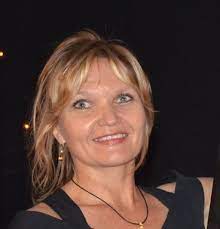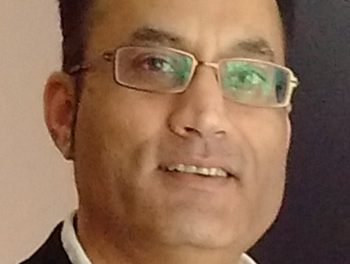
Independence – is it just a state of the mind?
 As we gear up for the 24th independence celebrations, I am sure most people will agree with me that our young nation has notably tackled or is in the right direction of achieving the goals envisaged in Vision 2030 even though we still have a lot of stumbling blocks. By definition Independence is a condition of a nation, country or state in which its residents and population or the largest portion thereof, exercise self-government and usually sovereignty over the territory they regards as the national inheritance. Yes, at 24 years, we seem to lucidly portray and embody exactly that which makes us a nation. By most benchmarks, we are politically and economically sound. But to what extent can we judge our independence as self-sustaining and sound, running to the roots of our existence, and not just scratching the surface and using the term independence as a scape goat to draw attention away from those issues where progress is lacking or have fallen behind. For example, we currently export mainly unprocessed minerals, diamonds and fish to countries far and wide and get the products back as finished, processed goods. In that light, how are we independent? It is obvious we are clearly still dependant on importation of consumer goods. And do not get me wrong, most developing nations are doing that including us, but for this 24th independence celebrations one has to ponder and ask ourselves when are we going to liberate ourselves from thiws syndrome? If you look at this situation it seems economic independence is still very far from being achieved. Large and extensive manufacturing industries are still lacking in the country and at the same time unemployment is at the order of the day. One disturbing aspect of striving for economic independence is the cost. Take for instance, the local poultry industry. We are still dependant on those 2kg packets from our neighbouring country but to protect our fledgling industry, we now have to pay through our necks for both the domestic and the imported chicken product. I think you can safely agree with me that it does not need rocket science to calculate the cost of this particular aspect of independence, and that for a product on which 90% of the population relies. At 24y ears its seems to me we often lack creativity and the drive to actually start anything. One point to note is that the best experience is to learn from your mistakes and this however seems to be a hurdle for most, as either they fear failure or it is just a lack of drive? Although we have encountered some stumbling blocks, mostly economic, I have to commend what the government has achieved over the past 24 years. This shows that independence is not only economical, we must also consider our political situation which I must commend. We are one of but just a few countries that enjoy political freedom through elections in accordance with the Constitution. This year will see people enjoying their privilege to go place their votes with no intimidation whatsoever. With that we can commend our nation and with no doubt say we are an independent country. Not only does the country enjoy political freedom but views and expressions are entertained. Last year a commendable act by the government was to introduce free primary education in accordance with Article 20 of the Namibian Constitution on free and compulsory primary education. I do not know a single Namibian who did not receive the news with joy. This move by the government clearly highlights that they have the people at heart and it demonstrates that at 24 years, the country has managed to create and build infrastructure to accommodate the masses in the process. The nation is trying to achieve self-sustainability and the road to transition is not always easy, but for a nation at 24, one has to appreciate what has been achieved so far. Rome was not built in one day and at only 24, we still have a far horizon to rectify all those challenges that where there at Independence and those problems that have emerged after Independence.
As we gear up for the 24th independence celebrations, I am sure most people will agree with me that our young nation has notably tackled or is in the right direction of achieving the goals envisaged in Vision 2030 even though we still have a lot of stumbling blocks. By definition Independence is a condition of a nation, country or state in which its residents and population or the largest portion thereof, exercise self-government and usually sovereignty over the territory they regards as the national inheritance. Yes, at 24 years, we seem to lucidly portray and embody exactly that which makes us a nation. By most benchmarks, we are politically and economically sound. But to what extent can we judge our independence as self-sustaining and sound, running to the roots of our existence, and not just scratching the surface and using the term independence as a scape goat to draw attention away from those issues where progress is lacking or have fallen behind. For example, we currently export mainly unprocessed minerals, diamonds and fish to countries far and wide and get the products back as finished, processed goods. In that light, how are we independent? It is obvious we are clearly still dependant on importation of consumer goods. And do not get me wrong, most developing nations are doing that including us, but for this 24th independence celebrations one has to ponder and ask ourselves when are we going to liberate ourselves from thiws syndrome? If you look at this situation it seems economic independence is still very far from being achieved. Large and extensive manufacturing industries are still lacking in the country and at the same time unemployment is at the order of the day. One disturbing aspect of striving for economic independence is the cost. Take for instance, the local poultry industry. We are still dependant on those 2kg packets from our neighbouring country but to protect our fledgling industry, we now have to pay through our necks for both the domestic and the imported chicken product. I think you can safely agree with me that it does not need rocket science to calculate the cost of this particular aspect of independence, and that for a product on which 90% of the population relies. At 24y ears its seems to me we often lack creativity and the drive to actually start anything. One point to note is that the best experience is to learn from your mistakes and this however seems to be a hurdle for most, as either they fear failure or it is just a lack of drive? Although we have encountered some stumbling blocks, mostly economic, I have to commend what the government has achieved over the past 24 years. This shows that independence is not only economical, we must also consider our political situation which I must commend. We are one of but just a few countries that enjoy political freedom through elections in accordance with the Constitution. This year will see people enjoying their privilege to go place their votes with no intimidation whatsoever. With that we can commend our nation and with no doubt say we are an independent country. Not only does the country enjoy political freedom but views and expressions are entertained. Last year a commendable act by the government was to introduce free primary education in accordance with Article 20 of the Namibian Constitution on free and compulsory primary education. I do not know a single Namibian who did not receive the news with joy. This move by the government clearly highlights that they have the people at heart and it demonstrates that at 24 years, the country has managed to create and build infrastructure to accommodate the masses in the process. The nation is trying to achieve self-sustainability and the road to transition is not always easy, but for a nation at 24, one has to appreciate what has been achieved so far. Rome was not built in one day and at only 24, we still have a far horizon to rectify all those challenges that where there at Independence and those problems that have emerged after Independence.












































